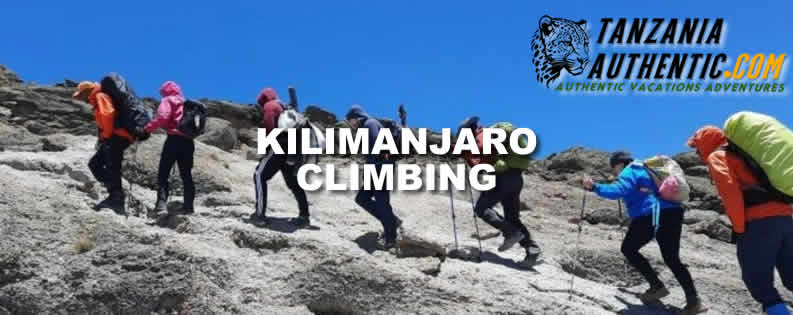How to Handle Medical Emergencies on a Remote Safari in Tanzania
Embarking on a remote safari in Tanzania is nothing short of a dream come true. The vast landscapes, the breathtaking wildlife, and the thrill of adventure create unforgettable memories. However, amidst the excitement, it’s crucial to be prepared for the unexpected. Medical emergencies can happen anywhere, and knowing how to handle them in the wild can make all the difference. In this inspirational guide, we will explore how to manage medical emergencies during your Tanzanian safari and ensure that you can focus on the wonders of nature without worry.
Understanding the Importance of Medical Preparedness
When you venture into the heart of the African wilderness, the last thing you want is to be caught off guard by a medical issue. Whether it’s a minor injury or a more serious condition, understanding how to respond is essential. Proper planning can safeguard your health and well-being, allowing you to immerse yourself in the beauty of Tanzania’s savannahs and national parks.
Why Choose Tanzania for Your Safari?
Before we delve into emergency preparedness, let’s highlight why Tanzania is a premier safari destination. Home to the iconic Serengeti National Park, the majestic Ngorongoro Crater, and the stunning landscapes of Mount Kilimanjaro, Tanzania offers unparalleled wildlife encounters. From the Great Migration of wildebeest to the Big Five, every moment spent here is packed with adventure.
But adventure can come with risks, especially in remote areas. Understanding how to handle medical emergencies can be the key to a safe and enjoyable experience.
Essential Tips for Handling Medical Emergencies
1. Pack a Comprehensive First Aid Kit
Your safari experience should start with proper preparation. A well-stocked first aid kit is your first line of defense. Make sure it includes:
- Adhesive bandages for cuts and scrapes
- Antiseptic wipes and ointments
- Pain relievers such as ibuprofen or acetaminophen
- Insect bite cream
- Antihistamines for allergic reactions
- Burn cream
- Any personal medications you may need
These essentials will help you manage minor injuries and ailments effectively during your safari.
2. Know the Symptoms of Common Ailments
Familiarize yourself with the symptoms of common travel-related illnesses, such as:
- Altitude sickness: Headaches, nausea, and fatigue.
- Dehydration: Excessive thirst, dry mouth, and dizziness.
- Gastrointestinal issues: Diarrhea and stomach cramps.
Knowing these symptoms can help you respond quickly and effectively if someone in your group experiences a medical issue.
3. Stay Hydrated and Nourished
In the heat of the Tanzanian sun, staying hydrated is crucial. Dehydration can escalate rapidly, especially during physical activities like hiking or game drives. Carry sufficient water and snacks to maintain energy levels and prevent exhaustion.
4. Establish Communication Plans
In the remote wilderness, finding help can be challenging. Before you set off on your safari, establish a communication plan with your tour operator. Confirm that your guide has access to satellite phones or emergency radios. This can be vital for contacting emergency services if needed.
5. Choose the Right Tour Operator
Selecting a reputable tour operator like Authentic Vacations Adventures can significantly enhance your safety. With experienced guides trained to handle emergencies, you can explore Tanzania with confidence. Authentic Vacations Adventures is committed to providing tailored experiences that prioritize your well-being, ensuring you have a safe and memorable journey.
What to Do in Case of an Emergency
1. Stay Calm
In any emergency, staying calm is the first step. Panic can cloud judgment and hinder effective action. Take a deep breath, assess the situation, and remind yourself that help is available.
2. Assess the Situation
Evaluate the injured person’s condition. Are they responsive? Do they need immediate medical care? Understanding the severity of the issue is crucial for determining the next steps.
3. Administer First Aid
If you’re trained in first aid, now is the time to use those skills. Administer basic care based on the symptoms you observe while waiting for professional help.
4. Contact Your Guide or Tour Operator
If the situation requires further medical attention, notify your guide immediately. They are trained to handle emergencies and will know the best course of action, whether it’s arranging for transportation to a medical facility or providing immediate care.
5. Keep Emergency Numbers Handy
Always have a list of emergency contact numbers at your disposal. This could include local hospitals, your tour operator, and any emergency services available in the area.
Embrace the Adventure with Confidence
While medical emergencies may seem daunting, being prepared can transform your safari experience into an extraordinary adventure. By packing appropriately, staying informed, and choosing a reliable tour operator like Authentic Vacations Adventures, you can focus on what truly matters – enjoying the stunning landscapes and incredible wildlife of Tanzania.
Conclusion: Book Your Dream Safari Today!
As you plan your journey into the breathtaking wilderness of Tanzania, remember that adventure awaits at every turn. Equip yourself with the knowledge and tools to handle any situation, and you’ll enjoy not just the thrill of the safari but also the peace of mind that comes with preparedness.
Don’t wait any longer! Book your unforgettable safari experience with Authentic Vacations Adventures today, and step into a world filled with adventure, beauty, and the wild spirit of Africa. Your dream safari is just a click away!









